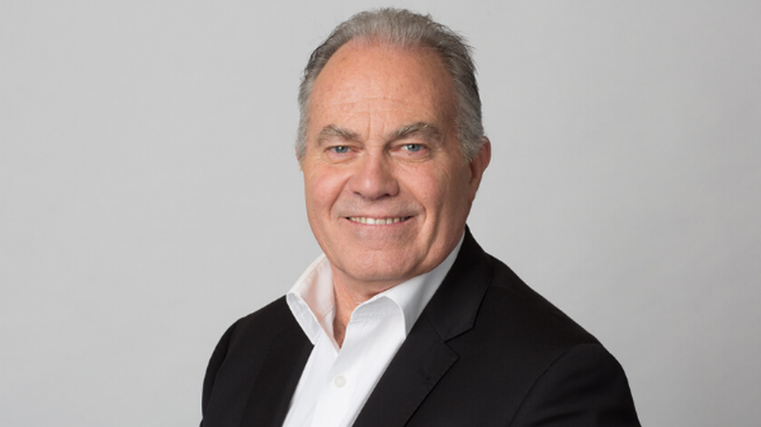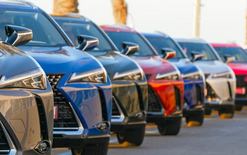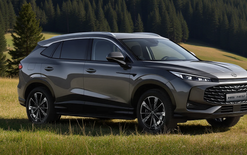Two decades of service

New Zealand’s used-imports industry, along with government and its officials, have matured over time to become more professional.
That’s what the chief executive of the Imported Motor Vehicle Industry Association (VIA) says as he transitions to retirement from the role.
David Vinsen has headed up the organisation for almost two decades in its various guises with the planning for him to “ease back” taking place for some months now.
“Some of the reasons include my age and that I’ve been in the job 19 years,” he told Autofile Online. “I think it’s time for a refresh for me and the association.
“It needs to be a transition and that’s why we’ve been talking about this for some time. I feel positive about it all and I wasn’t going to go on forever.
“I’ll cut back my full-time role from July, but will still be what they term VIA’s ‘face and voice’ although we’re yet to establish a timeframe on the way forward.
“I’ve got family businesses and other things going. I will also continue to represent the industry on various boards.” For example, he will remain on the government’s clean car sector leadership group and on Auto Stewardship New Zealand’s board.
Going back in time
VIA started off as the Licensed Motor Vehicle Dealers’ Importers’ Association in 1988.
It was renamed as the Imported Motor Vehicle Dealers’ Association (IMVDA) in 1992 with “Imported” being replaced by “Independent” seven years later. The IMVDA then became the IMVIA in 2009.
In 2001, Vinsen joined the IMVDA’s North Island committee and then sat on its national executive before being recruited as the association’s chief executive in 2003.
“I wasn’t in the first tranche of members of the IMVDA when it started, but as a family business we became members shortly after the association was formed,” he recalls.
“I eventually became involved in the North Island branch committee and then the national executive before being recruited to take on the chief executive role in 2003.”
Prior to heading up the IMVDA, Vinsen was president of the Motor Vehicle Dealers’ Institute (MVDI). The latter was formed in 1975 as a result of the Motor Vehicle Dealers’ Act, which required all traders to have a licence to operate. The system was administered and overseen by the MVDI.
“I’ve had a long career in the politics of the motor industry. It’s been good because during that time we’ve moved from being a reactionary group that was always challenging officials and the government, to one that works collaboratively with it.
“We’ve become a much more professional organisation that has been recognised by successive governments and their departments, and we’ve worked closely and collaboratively with officials, ministers and parliamentarians.
“Instead of opposing things, we have a seat at the table and are able to contribute to and influence the thinking of the early shape of legislation.”
Some of the highlights during Vinsen’s time at VIA have included the exhaust emissions rule, the roll-out of the electronic stability control regulations and the Takata airbag recall for which the new-vehicle industry paid for replacement parts.
“There are also a whole heap of other things. You always deal with things issue by issue.”
Looking to the future
Vinsen says VIA is now aiming to improve its communications, particularly internally, and the association has taken some steps towards that by devolving responsibility to key stakeholders working on key issues.
He adds it’s also important for the organisation to tap into the combined knowledge, talents and expertise of its members.
“We have been putting all that into play. It means we will get better engagement and understanding of issues, and how to deal with them. We’ll also get greater understanding from officials of the various businesses we represent.
“We have got a lot of challenges facing the industry and some of those challenges are almost existential.”
He highlights the dispensing of vehicles with internal combustion engines as one of those.
On this, Vinsen says: “The biggest risk this movement will face is a political one. That will happen once the collective public – internationally and in New Zealand – realises the costs that are going to be incurred in implementing various schemes.
“It’s social engineering and trying to force changes in behaviour by hurting people financially.
“As an industry, we’re going to have to be nimble, strategic and go with the flow. That was why VIA took the decision last year to support the government’s clean car programme. We acknowledged that we weren’t going to stop it, so it was better for us to be on-board to mitigate its effects and help shape its direction.
“Associations and organisations in the industry need to acknowledge these inexorable industrial trends. They need to be prepared to be agile and pragmatic to deal with them. Out of existential threats will come huge opportunities.”
• Read more about what the future holds for VIA and its recent AGM in the July issue of Autofile magazine.





